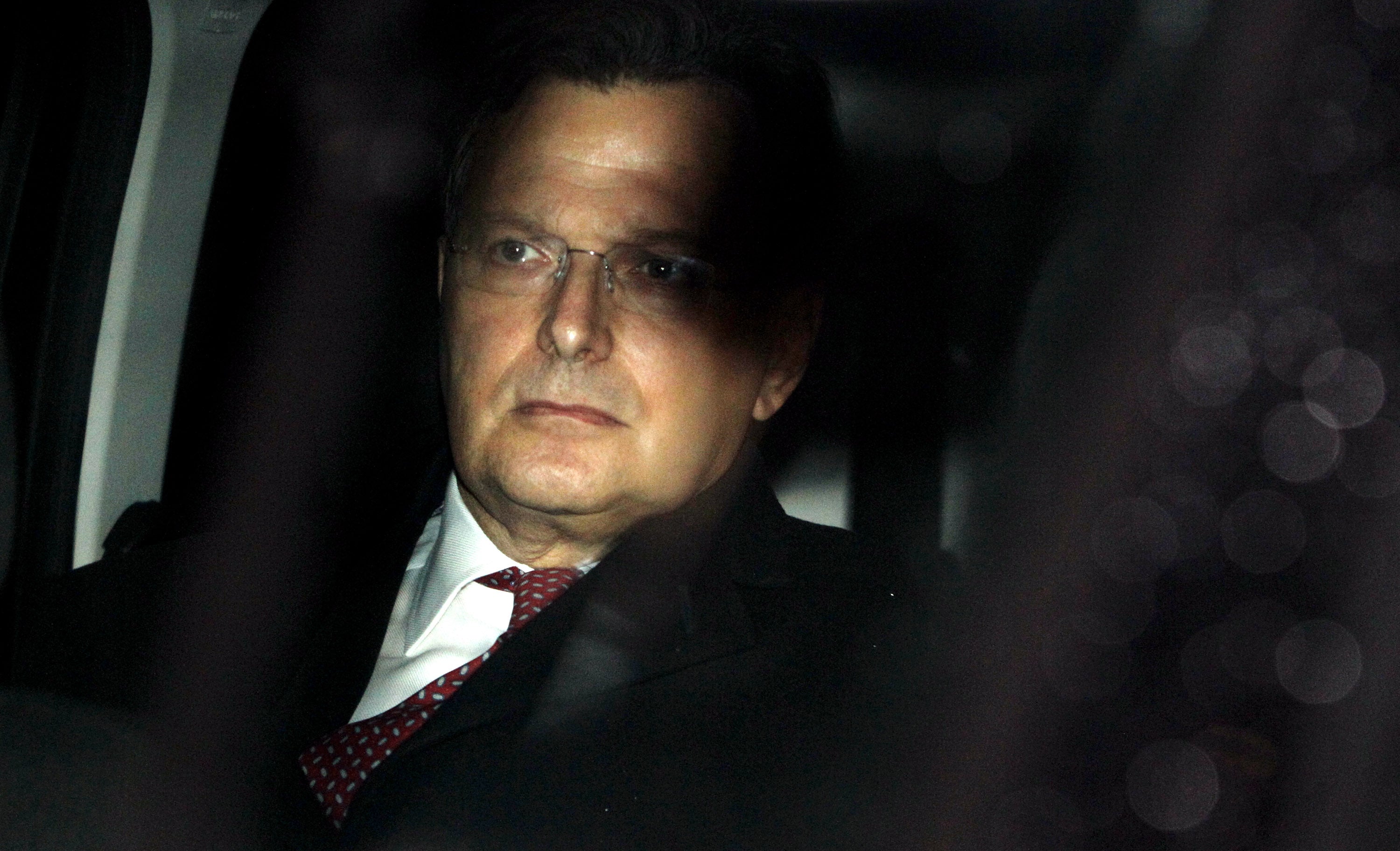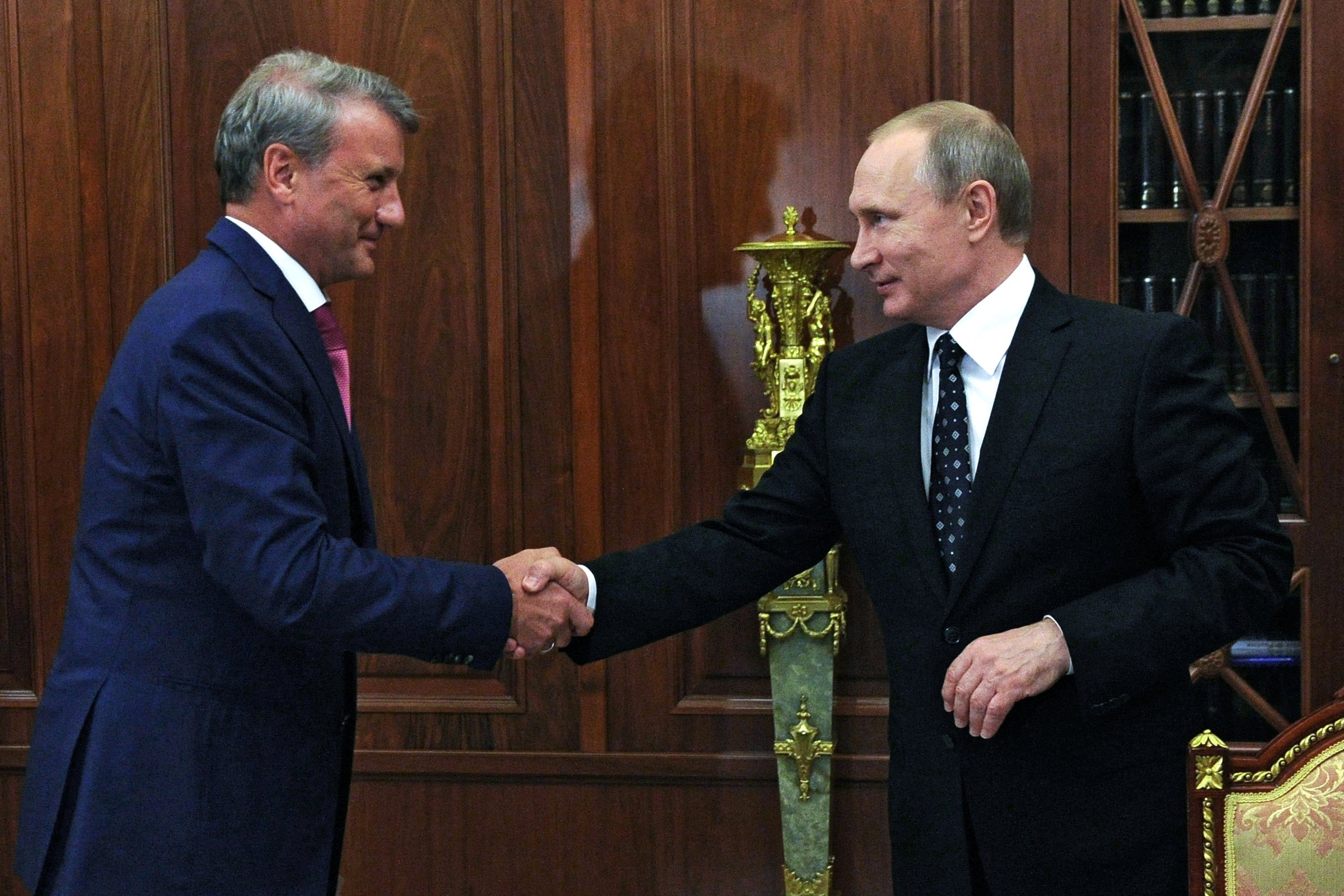Ex-Labour attorney general represented Kremlin-owned Russian bank sanctioned by UK
Exclusive: Labour peer Lord Goldsmith acted for Sberbank in a legal case last year

Your support helps us to tell the story
From reproductive rights to climate change to Big Tech, The Independent is on the ground when the story is developing. Whether it's investigating the financials of Elon Musk's pro-Trump PAC or producing our latest documentary, 'The A Word', which shines a light on the American women fighting for reproductive rights, we know how important it is to parse out the facts from the messaging.
At such a critical moment in US history, we need reporters on the ground. Your donation allows us to keep sending journalists to speak to both sides of the story.
The Independent is trusted by Americans across the entire political spectrum. And unlike many other quality news outlets, we choose not to lock Americans out of our reporting and analysis with paywalls. We believe quality journalism should be available to everyone, paid for by those who can afford it.
Your support makes all the difference.Labour peer and ex-attorney general Lord Goldsmith represented Russia’s biggest bank - which has been sanctioned by the UK in the wake of Vladimir Putin’s invasion of Ukraine - in a legal case only last year, The Independent can reveal.
Lord Peter Goldsmith, Tony Blair’s chief law officer for seven years until 2007, acted for Sberbank, majority-owned by the Russian government, during a High Court case in May.
As part of an extension to sanctions aimed at cutting off the Russian economy, foreign secretary Liz Truss announced on Monday Sberbank would be prevented from clearing payments in sterling. The US unveiled sanctions on the Russian bank - whose CEO has been described as an ally of Putin - last week.
It comes after it emerged last month that Lord Goldsmith had taken a leave of absence from the House of Lords at the end of 2021 before new transparency requirements came into force - meaning he avoids having to declare how much he is paid by foreign clients, including the Russian government.
The QC “personally provided” services to the Russian Federation as a co-managing partner of law firm Debevoise & Plimpton, according to register of interests entries from last year.

Now The Independent can disclose that his legal work has extended to representing Sberbank less than a year ago. A profile of Lord Goldsmith on Debevoise & Plimpton’s website highlights how he acted for Sberbank in its “successful challenge to the jurisdiction of the English High Court to hear a $300 million conspiracy claim brought by a subsidiary of Russian bank VTB”. Elsewhere, the website details how Goldsmith argued on behalf of Sberbank during the virtual three-day hearing in May before a judgment was handed down in July.
At the same time as the hearing last May, the US secretary of state Antony Blinken hit out at Russia during a visit to Ukraine - calling its actions “reckless and aggressive”. It came weeks after Russia massed troops near Ukraine’s border.
Sberbank’s CEO, Herman Gref, was named on the US Treasury Department’s so-called “Putin list”. The list of 114 politicians and 96 oligarchs, was released in January 2018. Gref was Russia’s minister of economic development and trade from 2000 until 2007.
Goldsmith’s profile on Debevoise & Plimpton’s website also references his legal services for the “Russian Federation”. In a section covering the peer’s “experience”, it states: “The Russian Federation in several disputes brought by former subsidiaries of Yukos Oil under the Energy Charter Treaty, including an arbitration brought by Financial Performance Holdings relating to an alleged expropriation and other breaches. In that matter, the claimant withdrew its claims and we obtained a full costs order for our client.”
On Monday, Truss unveiled plans to extend UK sanctions aimed at hitting banks in Russia. She told Parliament she was laying two new pieces of sanctions legislation, adding: “The first will introduce a set of new powers against Russia’s financial sector, including powers to prevent Russian banks from clearing payments in sterling. With over 50% of Russian trade denominated in dollars or sterling, our co-ordinated action with the United States will damage Russia’s ability to trade with the world, and as soon as this legislation comes into force, we will apply it to Sberbank—Russia’s largest bank.” The legislation came into force on Tuesday.
Under a “statement of reasons” section on the entry for Sberbank on the UK’s sanctions list, it states: “PJSC Sberbank… is involved in obtaining a benefit from or supporting the Government of Russia. PJSC Sberbank is Russia’s largest bank by assets controlled, and offers a range of financial services to consumers and business clients. It is a highly significant entity in the Russian financial services sector, a sector of strategic significance to the Government of Russia.”
It further explains that the government of Russia has a controlling share in the bank meaning it “carries on business as a Government of Russia-affiliated entity”.
Before taking leave of absence, there was no explicit mention in Lord Goldsmith’s register of interests from May - the month of the hearing - to December about his work representing Sberbank, according to monthly snapshots of entries.
Under a section listing “Remunerated employment, office, profession etc”, his entry published on 18 December said: “Co-Managing Partner, Debevoise & Plimpton LLP (international law firm) (the member has personally provided services to the Governments of Singapore, St Kitts & Nevis, Israel, Russian Federation, India and Qatar).” His entry is now empty, stating “nil”, adding: “On leave of absence; exempt from registration.”
A House of Lords conduct committee report released in October detailed: “The House has agreed that members should be required to register earnings from ‘governments of foreign states (including departments and agencies), organisations which may be thought by a reasonable member of the public to be foreign state-owned or controlled, and individuals with official status (whether executive, legislative or judicial) in foreign states when acting in that capacity’.”
It explained that when the provisions were introduced, “the House agreed a ‘grace period’ until 31 December 2021 during which the new provisions would not apply to professional relationships which pre-dated the new requirements. This would allow members to complete the work in question, obtain the client’s agreement to disclosure, or if necessary end the relationship.”
Asked by The Mail on Sunday - which last month reported his leave of absence - why he did not choose to resign from the Lords instead, he told the publication: “I am sorry to have to take leave of absence, but felt it was the only option open to me given the choice between that or revealing privileged and confidential information.”
A spokesperson for Debevoise & Plimpton said: “The Sberbank case in which Lord Goldsmith acted ended last year, and Lord Goldsmith has not done any work for Sberbank since that time.”
A Labour spokesperson said: "Labour supports the sanctions imposed on Russian banks operating in the UK. We also want the Government to act faster and introduce tougher sanctions on entities with close ties to Vladimir Putin’s regime."
Asked about Lord Goldsmith’s legal services for the bank, Sberbank declined to comment.
On Wednesday, Sberbank announced it was pulling out of almost all European markets citing “abnormal cash outflows and threats to the safety of its employees and branches”. The move does not affect Sberbank’s business in Switzerland, which it said was continuing to operate.
Lord Goldsmith is not under investigation by the Commissioners for Standards, a House of Lords spokesperson confirmed.

Join our commenting forum
Join thought-provoking conversations, follow other Independent readers and see their replies
Comments